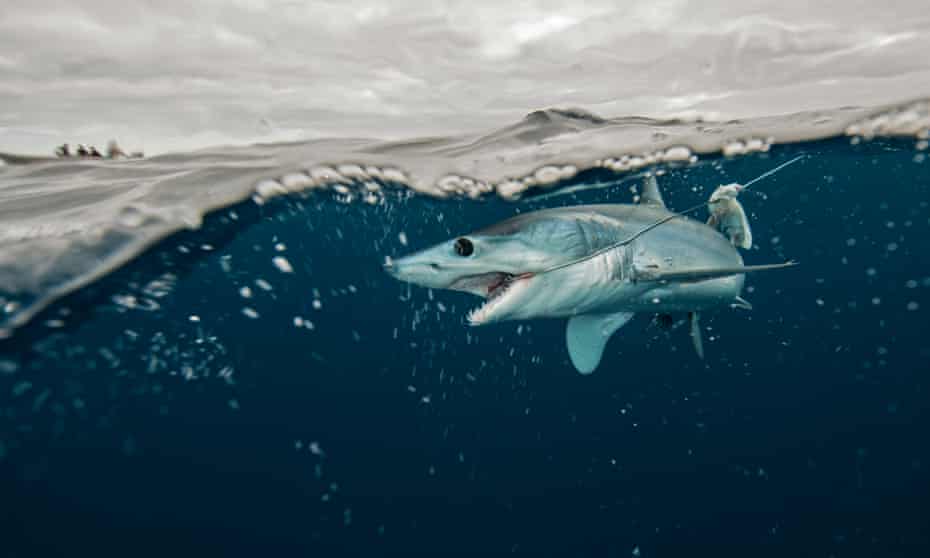Atlantic fishing nations agree to ban catches of mako, world’s fastest sharks
Conservationists hail move as ‘critical breakthrough’ to protect endangered shortfin mako, prized for meat, fins and sportfishing

North Atlantic fishing nations have pledged to ban catches of the shortfin mako, the world’s fastest shark, in an attempt to save the endangered species.
Conservationists, who have for years sought to better protect the mako, said the ban was a “critical breakthrough”. The effort to ensure agreement between fishing nations was led by the UK, Canada and Senegal.
At the annual meeting of the International Commission for the Conservation of Atlantic Tunas (ICCAT) this week, countries agreed “to end overfishing immediately and to gradually achieve biomass levels sufficient to support maximum sustainable yield by 2070” for the mako shark.
The shortfin mako, sometimes referred to as the “cheetah of the ocean”, can reach speeds of about 45mph (72km/h). Prized for its meat, fins and for sportfishing, it is classified as endangered on the International Union for Conservation of Nature’s red list of threatened species and is considered exceptionally vulnerable in the North Atlantic.
Worldwide concern over the decline was highlighted in 2019, when a record number of countries voted to regulate trade under the Convention on International Trade in Endangered Species (Cites). ICCAT scientists have recommended a ban on taking makos since 2017, to reverse the decline and rebuild the population.
Shannon Arnold, marine programme coordinator at Ecology Action Centre, said: “We congratulate Canada, the UK, Senegal, and Gabon, for leading the charge to secure this historic, science-based protection for endangered shortfin mako sharks. We celebrate this critical step today, mindful that the fight to bolster it begins tomorrow.”
Ali Hood, director of conservation at the Shark Trust, paid tribute to the “conservationists, divers, scientists” and others who had helped pressure fishing nations to reach this “critical breakthrough”.
The ICCAT, a coalition of more than 50 countries, including some of the world’s largest fishing nations, also agreed measures to conserve bigeye and yellowfin tuna, as well as plans to tackle illegal, unregulated and unreported fishing. It set itself a quota of 62,000 tonnes for bigeye tuna and 110,000 tonnes for yellowfin tuna in 2022, and said it will review these measures next year in order to set new catch limits in 2023.
Grantly Galland, an officer at the Pew Charitable Trust, said: “This is a remarkable list of improvements that will contribute to the successful management and conservation of tunas, sharks and billfishes in the Atlantic Ocean.
“By nearly any measure, this meeting was a success, shows that real progress can be made despite the challenges of the pandemic, and the fishing operations, other stakeholders, and wildlife impacted by ICCAT decisions will be better for it.”